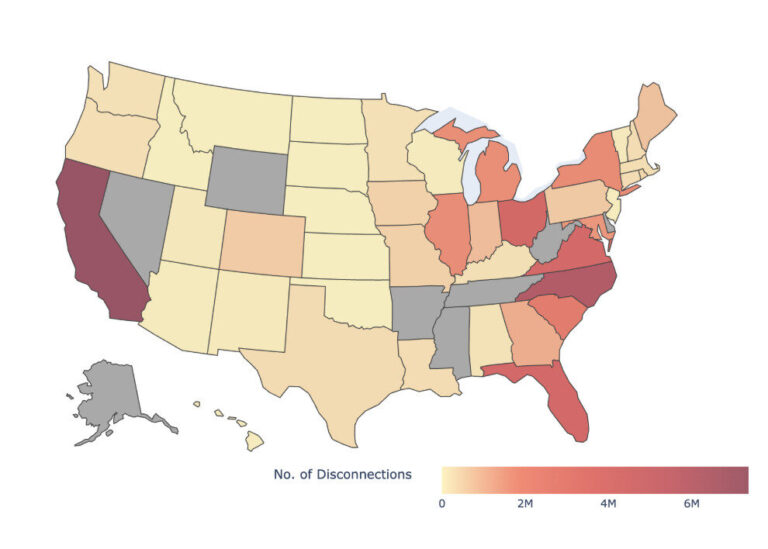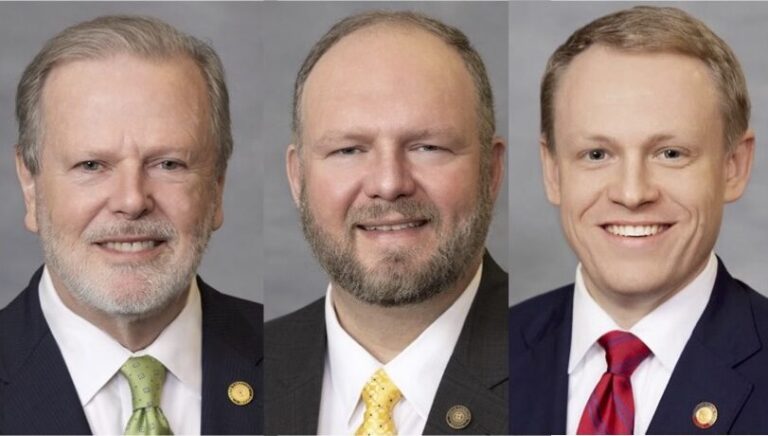Strings Attached: How utilities use charitable giving to influence politics and increase investor profits

Duke Energy
Duke is a utility company that serves more than 7.7 million retail electric customers across North Carolina, South Carolina, Florida, Ohio, Indiana, and Kentucky. Its gas subsidiary, Piedmont, provides natural gas distribution to over a million customers in North Carolina, South Carolina, and Tennessee.
Basic Facts:
- EPI estimate of Duke’s total charitable giving in most recent 5 years (2013-2017): $306,482,338. (1)
- Name of Foundation: Duke Energy Foundation
- Duke Energy Foundation Giving (2013-2017): $153,182,338
- 2017: $33,635,027
- 2016: $32,640,472
- 2015: $31,182,284
- 2014: $29,670,388
- 2013: $26,054,167
- Corporate Charitable Giving (2013-2017)
- Sum of total corporate charitable giving according to Corporate Responsibility Reports: $153,300,000
- 2017: $19,200,000. (2)
- 2016: $20,100,000. (3)
- 2015: $17,600,000. (4)
- 2014: $46,900,000. (5)
- 2013: $49,500,000. (6)
- *The data from Duke’s sustainability reports are disaggregated in the corresponding footnotes. These totals include “other company cash contributions and in-kind gifts and services,” and employee/retiree contributions and volunteer hours, which contributes to differences from the reported figures on the FERC Form 1s. Other reasons for the discrepancies are not clear.
- Sum of total charitable giving in most recent 5 years according to FERC Form 1 and Form 60 filings: $218,120,957. (7)(8)
- 2017: $17,172,488. (9)
- 2016: $112,681,870. (10)
- 2015: $18,992,342. (11)
- 2014: $17,926,805. (12)
- 2013: $51,347,452. (13)
- Sum of total corporate charitable giving according to Corporate Responsibility Reports: $153,300,000
- Duke Energy Foundation Leadership:
- Shawn Heath is the President of Duke Energy Foundation. Heath also serves as Vice President and Chief of Staff to Duke Energy CEO Lynn Good.
- Cari Boyce is the immediate past President of Duke Energy Foundation, whose terminal role at Duke Energy during her Foundation tenure was Senior Vice President of Strategy and Sustainability.(14) Boyce is now Duke Energy’s Senior Vice President of Enterprise Strategy and Planning.
- Duke Energy Foundation Board of Directors:
- Jennifer DeWitt, Duke Energy Director of Foundation Programs and Community Affairs
- Charles M. Taft, Duke Energy Director of Program Performance
- Richard G. Beach, Duke Energy Assistant General Counsel
- Kris C. Duffy, Duke Energy Director of Corporate Business Support for Financial Planning and Analysis
- Melissa H. Anderson, Duke Energy Executive Vice President for Administration and Chief Human Resources Officer
- Doug F. Esamann, Duke Energy Executive Vice President of Energy Solutions for the Midwest and Florida Regions
- Dhiaa M. Jamil, Duke Energy Executive Vice President and Chief Operating Officer
- Julie S. Janson, Duke Energy Executive Vice President for External Affairs and Chief Legal Officer
- Lloyd M. Yates, Duke Energy Executive Vice President for Customer and Delivery Operations and President for the Carolinas Region
- Franklin H. Yoho, Duke Energy Executive Vice President and President for Natural Gas Business
- Steven K. Young, Duke Energy Executive Vice President and Chief Financial Officer
Examples of Duke using charitable giving to manipulate policy:
Attempted co-option of Black churches and community groups
Duke has been accused of seeking to co-opt Black churches and community groups in Greensboro, NC and elsewhere as part of its campaigns against rooftop solar, which the utility views as a threat to its business model. Rev. Nelson Johnson, minister to a majority-Black congregation at the Faith Community Church and Executive Director of the Beloved Community Center, reported visits from “three different individuals selling Duke’s ‘solar power hurts the poor’ message” in the span of several months in 2015, as covered by Facing South.
In a letter to Duke CEO Lynn Good, co-authored by Jim Warren, Executive Director of the Durham-based environmental non-profit NC WARN, Johnson wrote:
“It appears evident that this ‘solar hurts the poor’ strategy has been coordinated by Duke and its cohorts in the corporate electric power industry and used in many states recently. Fortunately, the scheme has been rejected by the NAACP’s national board, by various state NAACP chapters, and by the Congressional Black Caucus, among others. Nevertheless, Duke Energy is vigorously pursuing this same deception in North Carolina. This cynical corporate activity is an affront to the people of this state, and it is your personal responsibility to stop it.”
Duke’s aggressive approach to Black community leaders in North Carolina came amid its campaign against the Energy Freedom Act, which would have allowed third-party solar in North Carolina outside of the utility’s monopoly. Johnson called out Duke’s tactics as a “cynical corporate effort” to divide North Carolinians while the state’s poor remain burdened by Duke’s business model. “There is a profound irony in your vigorous opposition to the Energy Freedom Act,” they wrote in their letter to Good. “Because your customers are increasingly choosing rooftop solar, you say you will try to force other captive customers to pay more for dirty power plants. Then, from the other side of your corporate mouth, you’re trying to block the very avenue for those other customers to go solar.”

Harvey B. Gantt Center
Duke’s coordinated philanthropic giving to North Carolinian Black community institutions totaled more than $200,000 in 2015.
Table 1: Select Duke Philanthropic Contributions to NC Black Community Organizations, 2015
| American Association of Blacks in Energy (NC) | $2,000 |
| The Black Girls Corner, Inc. | $500 |
| The Harvey B. Gantt Center for African-American Arts+Culture (Formerly known as “Afro-American Cultural Center, Inc.,” the organization name reported on Duke Energy Foundation’s 2015 990 tax form.) | $180,000 |
| National Association of Black Accountants (NC) | $3,500 |
| National Coalition of 100 Black Women (NC) | $1,000 |
| National Society of Black Engineers (NC) | $2,000 |
| North Carolina Black Repertory Company | $5,000 |
| United Negro College Fund, Inc. (NC) | $35,000 |
| Total | $229,000 |
Greenwashing air pollution and solar opposition
In September 2016, Duke announced it would spend $300,000 to install solar panels on up to 10 schools in North Carolina and provide related educational programming, in partnership with NC GreenPower. The Raleigh-based non-profit is focused on renewable energy and carbon offset projects, including K-12 solar installations.
Duke’s investment was part of a $5.4 million settlement with the U.S. Environmental Protection Agency and other environmental groups in response to potential violations of the Clean Air Act – mandating that the utility spend “up to $600,000 for clean energy and energy efficiency projects in economically distressed counties in North Carolina and South Carolina,” as reported by DeSmog. Greenpeace USA field organizer Caroline Hansley called the solar schools program “a flashy way to dress up a penalty for pollution,” while Duke’s own spokesperson Randy Wheeless said the solar panels would “handle a small portion of the school’s [overall energy] load” resulting in “rather modest” bill savings.
Duke held considerable influence over both NC GreenPower and its parent non-profit, Advanced Energy, which continued to administer NC GreenPower at the time of the latter’s selection to execute Duke’s solar schools grants. Duke executives wielded a strong presence on the Boards of both charities. The North Carolina Utilities Commission (NCUC), which selects NC GreenPower’s Board, appointed Duke Vice President of Efficiency and Innovative Technology, Robert Caldwell.
Similarly deeply connected to regulators and utility leadership, Advanced Energy was founded by the NCUC to explore and deploy new grid and renewables technologies. Its Board President at the time of the Duke schools program was Tony Almeida, a more than 30-year Vice President at Duke Energy and advocate for offshore drilling as an adviser to then-governor Pat McCrory, himself a 29-year Duke veteran, as reported by The News & Observer. The following Duke executives or well-documented allies held at least five more Board positions at the organization:
- Robert Caldwell – Duke Energy Vice President of Efficiency and Innovative Technology
- Kendal Bowman – Duke Energy Vice President of Regulatory Affairs and Policy
- Henry Campen, Jr. – partner and energy team lead at Parker, Poe Adams, and Bernstein, a frequent legal representative for Duke
- Nancy Temple – former Vice President of Corporate Communications at Duke-merged company Progress Energy
- Chris Ferell – former Duke Energy engineer
Duke’s dominance of both NC GreenPower and Advanced Energy not only provided a measure of control over how its penalty money was spent, but granted Duke the veneer of a commitment to renewables – all while it has actively impeded solar development in North Carolina and doubled down on gas expansion. In the year prior, the utility opposed the Energy Freedom Act, a bipartisan bill to lift a ban on third-party solar in North Carolina, and took a neutral stance as the state’s solar tax credit expired. Just months before the solar program announcement, Duke completed its acquisition of Piedmont Natural Gas, and nearly half of the 600-mile Atlantic Coast Pipeline, which will transport fracked gas from West Virginia to Virginia, North Carolina, and potentially further south.
2013 Ohio Rate Case Comments
At least six Ohio organizations receiving contributions from Duke Energy Foundation filed comments in favor of a rate increase for the utility in January 2013. In its rate cases, which it filed in July 2012, Duke Energy Ohio sought a 24% increase over previous electric distribution revenues and an 18% increase over previous gas distribution revenues, according to the Ohio Public Utilities Commission.
Butler County United Way, the Greater Cincinnati-Dayton Region American Red Cross, Cincinnati Museum Center, the Cincinnati USA Regional Chamber Foundation, and the Fairfield City School District each filed comments in both rate case dockets in support of Duke Energy as a valued community partner. Some letters, like that from the Fairfield City School District, praised Duke for providing “superior level of [gas and electric] service,” and calling on the Public Utilities Commission of Ohio to “please consider the importance of the investments made and to be made by Duke Energy in order to maintain its excellent service to its customers.” The Fairfield City School District received $6,000 from Duke Energy’s foundation in 2013.
Other comments extolled Duke’s monetary contributions to the authoring organizations. A letter from American Red Cross of the Greater Cincinnati-Dayton Region CEO Patricia M. Smitson credited Duke with “provid[ing] much needed funds to enable our work” – according to tax disclosures, to the tune of $20,000 during the rate case period between 2012-2013. Butler County United Way President and CEO Bruce E. Jewett wrote that Duke and its employees gave more than a million dollars to United Ways in Greater Cincinnati in 2012, and that “[w]ithout partners such as Duke Energy, our ability to positively impact our community would be significantly decreased.

Cincinnati Museum Center Superintendent Paul Otten remarked on the utility’s “substantial grant to support an initiative known as the Duke Energy E-Squares Project Established [sic] in October 2011…to promote the ‘4-Es’: Education, Environment, Energy Efficiency and Economic Development. Specifically, the funding supports exhibit signage and special programming to promote our visitors’ exposure to and understanding of these key concepts.” Cincinnati Museum Center’s letter also detailed Duke’s gift of the “Duke Energy Holiday Trains exhibit” two years prior, an extension of a tradition of Duke largesse in support of a model train system stemming back to 1946. The organization received at least $102,000 from Duke between 2012-2013.
Table 2: Duke Foundation Contributions to Select OH Rate Case Supporters, 2012-2013
| Butler County United Way (15) | $4,851 |
| Cincinnati Area Chapter of the American Red Cross | $20,000 |
| Cincinnati Museum Center | $102,000 |
| Cincinnati USA Regional Chamber Foundation | $660,000 |
| Fairfield City School District | $6,000 |
| Total | $792,851 |
Many of the letters of support, like that from Cincinnati USA Regional Chamber President and CEO Ellen G. van der Horst, note Duke Energy leadership’s participation on the organizations’ boards. On top of the $660,000 the organization received in the rate case period, the Chamber comment referenced the “active” Board membership of Duke Energy Ohio and Kentucky President Jim Henning. It likewise notes that Duke Energy’s Julie S. Janson served as Board Chair of the Chamber during the period of the rate case; Janson is on the Board of the Duke Energy Foundation and was also President of Duke Energy in Ohio and Kentucky while chairing the Chamber Board. The Red Cross letter describes Duke Energy Vice President James Mehring’s participation on the chapter’s Board, and as its Vice Chair of Volunteer Resources and Youth, as “an honor”. United Way’s comment includes mention of one of Duke’s Regional Managers chairing the charity’s 2013 fundraising campaign.
Footnotes
(1) Estimate based on Duke’s foundation tax returns (Form 990) and all non-foundation charitable giving disclosed in its annual CSR reports.
(2) Includes $6,900,000 in “other company contributions and in-kind gifts and services,” $9,500,000 in “cash contributions from employees and retirees,” and $2,800,000 in “estimated value of volunteers’ time”, according to Duke’s 2017 Sustainability Report.
(3) Includes $7,800,000 in “other company contributions and in-kind gifts and services,” $10,000,000 in “cash contributions from employees and retirees,” and $2,200,000 in “estimated value of volunteers’ time”, according to Duke’s 2016 Sustainability Report.
(4) Includes $7,800,000 in “other company contributions and in-kind gifts and services,” $7,200,000 in “cash contributions from employees and retirees,” and $2,600,000 in “estimated value of volunteers’ time”, according to Duke’s 2015 Sustainability Report.
(5) Includes $35,200,000 in “other company contributions and in-kind gifts and services,” $6,800,000 in “cash contributions from employees and retirees,” and $4,800,000 in “estimated value of volunteers’ time”, according to Duke’s 2014 Sustainability Report.
(6) Includes $12,200,000 in “other company contributions and in-kind gifts and services,” $28,200,000 in “merger-related giving,” $5,200,000 in “cash contributions from employees and retirees,” and $3,900,000 in “estimated value of volunteers’ time”, according to Duke’s 2013 Sustainability Report.
(7) Includes unusually large sums from Duke Energy Carolinas and Duke Energy Progress in both 2016 and 2013, likely owing to several settlements. Examples include agreements with the North Carolina Utilities Commission to devote an additional $20 million to bill assistance for low income customers and workforce development training, and a settlement with the EPA over potential violations of the Clean Air Act.
(8) Includes Duke’s six electric subsidiaries ($186,572,292), Duke Energy Business Services LLC ($31,526,694), and Progress Energy Service Company LLC ($21,971)
(9) Includes the following subtotals for Duke’s subsidiaries: Duke Energy Carolinas ($4,083,062), Duke Energy Florida ($3,227,350), Duke Energy Indiana ($922,578), Duke Energy Kentucky ($450,291), Duke Energy Ohio ($819,630), Duke Energy Progress ($2,301,970), and Duke Energy Business Services LLC ($5,367,607)
(10) Includes the following subtotals for Duke’s subsidiaries: Duke Energy Carolinas ($62,553,334), Duke Energy Florida ($2,480,480), Duke Energy Indiana ($895,734), Duke Energy Kentucky ($418,773), Duke Energy Ohio ($1,221,441), Duke Energy Progress ($37,429,332), and Duke Energy Business Services LLC ($7,682,776)
(11) Includes the following subtotals for Duke’s subsidiaries: Duke Energy Carolinas ($5,228,172), Duke Energy Florida ($2,312,503), Duke Energy Indiana ($1,229,455), Duke Energy Kentucky ($489,274), Duke Energy Ohio ($1,128,128), Duke Energy Progress ($2,593,653), Duke Energy Business Services LLC ($6,011,157), and Progress Energy Service Company LLC ($0)
(12) Includes the following subtotals for Duke’s subsidiaries: Duke Energy Carolinas ($5,269,971), Duke Energy Florida ($2,076,921), Duke Energy Indiana ($1,125,442), Duke Energy Kentucky ($377,876), Duke Energy Ohio ($1,383,589), Duke Energy Progress ($495,685), Duke Energy Business Services LLC ($7,197,321), and Progress Energy Service Company LLC ($0)
(13) Includes the following subtotals for Duke’s subsidiaries: Duke Energy Carolinas ($17,477,006), Duke Energy Florida ($2,080,507), Duke Energy Indiana ($887,972), Duke Energy Kentucky ($184,579), Duke Energy Ohio ($2,868,727), Duke Energy Progress ($22,558,857), Duke Energy Business Services LLC ($5,267,833), and Progress Energy Service Company LLC ($21,971)
(14) Boyce’s tenure as the President of Duke Energy Foundation concluded on October 1, 2019, as announced by Duke Energy in August 2019.
(15) Butler County United Way’s letter of support also referenced Duke Energy’s giving to United Way of Greater Cincinnati, which amounted to $352,210 between 2012-2013.
Read the rest of the report and other utility case studies here.



